Teachers across the country are receiving double good news as the Law on Teachers is about to take effect, along with the Ministry of Education and Training ’s proposal on special salary and allowance regimes. The new policies are expected to bring great encouragement, affirming the position of the teaching profession.
New policy to elevate the status of teachers
The Law on Teachers, which was passed by the National Assembly , consists of 9 chapters and 42 articles and will take effect from January 1, 2026, bringing many outstanding policies for the teaching staff. When the Law takes effect, teachers' salaries will be given the highest priority in the administrative sector. This is the basis for the Government to adjust the appropriate salary regime, ensuring the rights of teachers.
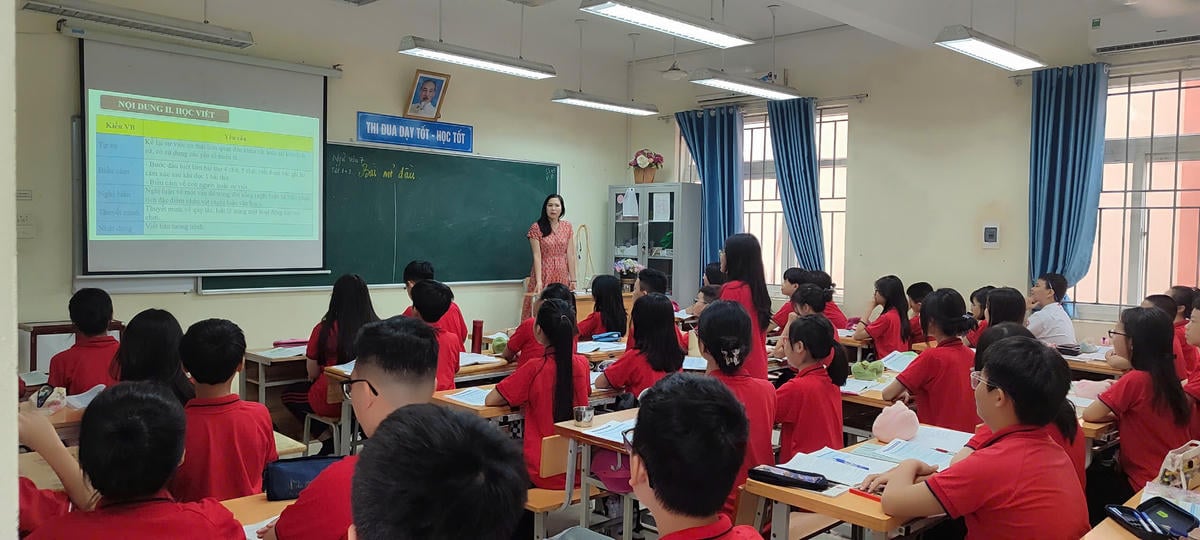
In addition to salary, the law stipulates that teachers are entitled to special allowances, responsibility allowances, allowances for disadvantaged areas, allowances for inclusive education, seniority, mobility, etc., to help increase their overall income.
For preschool teachers, the Law allows early retirement of up to 5 years without reducing pension if they have paid social insurance for 15 years. Meanwhile, professors, associate professors, doctors or teachers working in specialized fields can retire later to retain talent.
The Law on Teachers also gives the education sector the initiative in recruiting and using teachers, helping to resolve policy bottlenecks, especially the problem of surplus and shortage of teachers and proactively planning for the development of the teaching staff in the future.
In addition to the Law on Teachers that is about to take effect, the Ministry of Education and Training has just announced a draft Decree on salary and allowance policies for teachers, attracting great attention from teachers nationwide.
According to the draft, all teachers are entitled to a special salary coefficient. Of which, preschool teachers receive 1.25, other levels receive 1.15 compared to the current salary coefficient. In addition, teachers are also proposed to receive additional allowances for responsibility, mobility, heavy work, toxicity, and danger, contributing to improving income and ensuring correlation between professions.
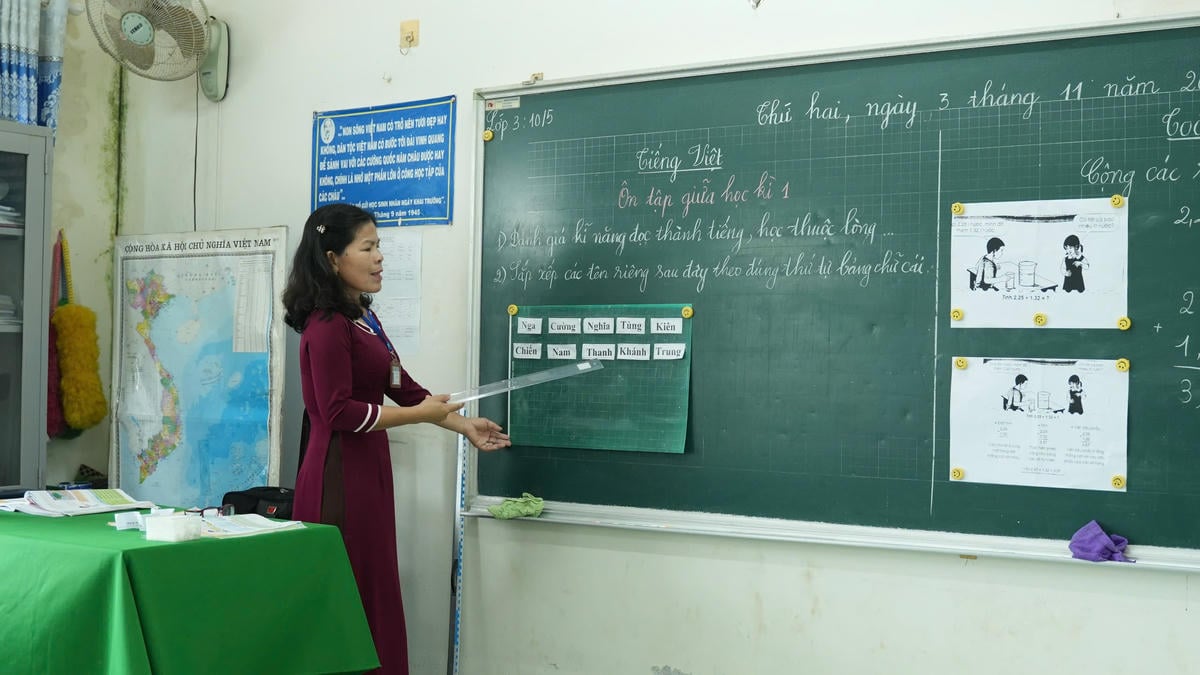
The Ministry of Education and Training explained that currently teachers' salaries are not ranked highest in the administrative salary scale system, and are even lower than those of civil servants in other fields, even though the teaching profession requires high professional qualifications and social responsibility.
In particular, preschool teachers are at the lowest level among the teaching positions and lower than all other sectors and fields. While the working environment and professional activities of preschool teachers have been proven to be difficult in practice.
Therefore, this adjustment aims to ensure the correlation between professions and affirm the position of the teaching staff.
After nearly 35 years in the profession, Ms. Chu Thi Ly, a teacher at Sung La Primary School for Ethnic Minorities (Sa Phin Commune, Tuyen Quang), earns about 25-26 million VND/month, thanks to allowances for mountainous areas, borders, and seniority.
That is the result of decades of Ms. Ly sticking with the class in difficult conditions, teaching in the cold, on winding red dirt roads leading to Lao Xa school - where students have to walk for hours to get to class.
Hearing the news that teachers will receive a salary increase and additional allowances from 2026, Ms. Ly was moved to say that this is good news that teachers in mountainous areas have been waiting for a long time, not only because of improved income, but also because of the recognition and respect for the teaching profession.
That joy was also shared by Ms. Mua Thi Duong, a teacher at Hua Thanh Kindergarten (Dien Bien). After more than 20 years in the profession, Ms. Duong said that the work of a kindergarten teacher is very hard, leaving early and returning late, spending most of the time at school, with little time for family.
“If income improves, life will be more stable, and we will have to consider spending less,” Ms. Duong said, expressing her hope that the State will continue to pay more attention and support to teachers in mountainous areas – those who always persevere in their classes, keep their love for the profession, and love for children.
Joy comes with concerns about teaching quality
In just a short time, more than 1.2 million teachers will enjoy new policies on salary, allowances and benefits. Mr. Nguyen Van Loi - Principal of Sung La Primary Boarding School (Sa Phin Commune, Tuyen Quang), said that the salary and allowance adjustment is a great source of encouragement for teachers. When income is improved, teachers' lives will be more stable, thereby making them feel secure in their work and committed to the profession for a long time.
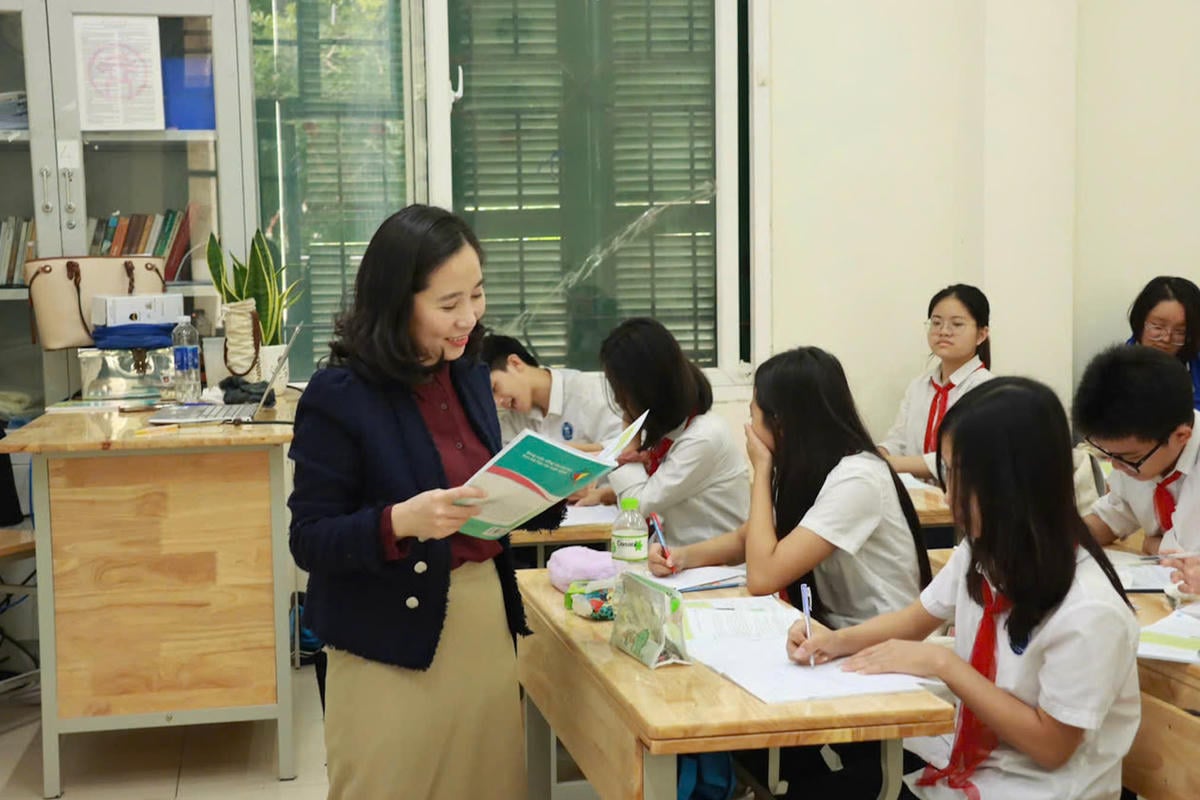
According to Mr. Loi, the new salary policy not only helps improve the lives of teachers but can also attract young human resources to join the education sector. In fact, at the school, there is almost no young teaching staff. Therefore, he hopes that the policy will soon be implemented to attract young people to the highlands, contributing to solving the long-standing problem of teacher shortage.
Mr. Nguyen Khac Hoan, a Literature teacher at Chu Van Thinh High School (Son La), shared that increasing salaries and allowances not only improves life but also motivates teachers to focus on teaching and improve student quality. When income is stable, teachers have less pressure to make a living, reduce extra teaching and learning, spend more time on lectures and support weak students, especially in difficult areas.
The joy and expectations of the teaching staff show that the policy is not only about salary but also about recognition and honoring the teaching profession. However, behind the joy is an open question: Will better income help end extra teaching and improve teaching quality? This is also an issue that opens up the next perspective.
Teachers’ joy and expectations show that the policy is not only about income but also about recognition and honoring the teaching profession. However, after that joy, the question is: Will better income help reduce the situation of extra teaching and learning and improve the quality of teaching?
(To be continued)
These documents play a very important role in ensuring the Law on Teachers is effectively implemented throughout the system, helping the law's policies to be quickly put into practice, and teachers to soon have access to better policies and regimes.
Source: https://daidoanket.vn/tang-dai-ngo-giu-lua-nghe-bai-1-niem-vui-tu-chinh-sach.html



![[Photo] Chu Noodles - the essence of rice and sunshine](https://vphoto.vietnam.vn/thumb/1200x675/vietnam/resource/IMAGE/2025/11/11/1762846220477_ndo_tl_7-jpg.webp)
![[Photo] Prime Minister Pham Minh Chinh chairs a meeting on housing policy and the real estate market.](https://vphoto.vietnam.vn/thumb/1200x675/vietnam/resource/IMAGE/2025/11/11/1762838719858_dsc-2107-jpg.webp)







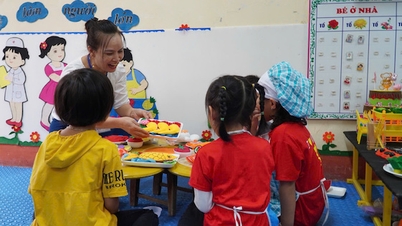
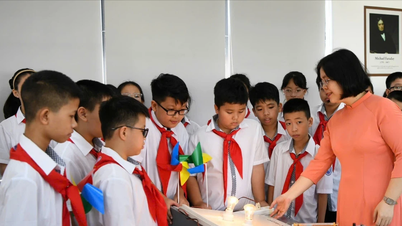



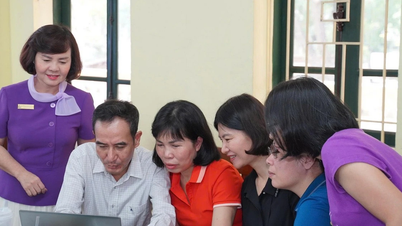




















































































![Dong Nai OCOP transformation: [Article 4] Reaching national standard products](https://vphoto.vietnam.vn/thumb/402x226/vietnam/resource/IMAGE/2025/11/11/1762825820379_4702-cac-san-pham-trai-cay-chung-nhan-ocop-nongnghiep-174649.jpeg)



![Dong Nai OCOP transition: [Article 3] Linking tourism with OCOP product consumption](https://vphoto.vietnam.vn/thumb/402x226/vietnam/resource/IMAGE/2025/11/10/1762739199309_1324-2740-7_n-162543_981.jpeg)






Comment (0)